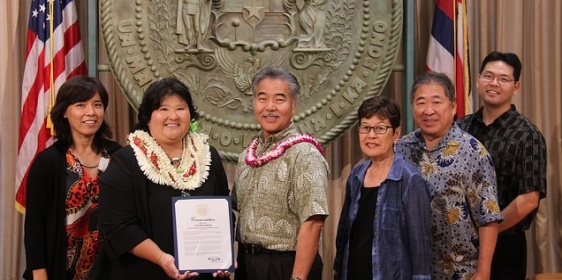Higher learning improves job opportunity
Getting an advanced degree can create many opportunities. In fact, data from the Bureau of Labor Statistics and The Organization for Economic Co-operation illustrates how education pays you back in higher earnings and lower unemployment rates - but you still have to figure out how to pay for the degree. Not to worry! We’ve got great tips for you, including;
- How the FASFA plays into funding grad school
- How to get scholarships and find stipends
- International monies and how they work
By now, you’ve probably done the whole scholarship thing a couple times as an undergrad, but here is a quick refresher course on how to cover your bases and pay for your tuition, with as little burden on your own pocket as possible. Funding options include grants, scholarships, stipends, and student loans.
First off, the FAFSA
“Completing the Free Application for Federal Student Aid (FAFSA®) is the first step toward getting federal aid for college, career school, or graduate school." Many prospective students recall that the FAFSA was tied to their parents income and mistakenly think it no longer applies to them. It is in fact very important to your funding efforts (we'll explain why...). And the good news; in many cases, your parents income is no longer relevant and your qualification for funding will be based solely on your own income.
Even if you aren’t huge on the idea of loans, the FAFSA will enable you to get them if you end up needing them, and enable you to participate in work study programs if you qualify. Plus, many scholarships ask for your EFC (Expected Family Contribution figure provided by FAFSA) to let them know what your financial situation looks like and compare your needs to those of other scholarship applicants. Completing your FAFSA application is vital for getting university based funding as well. This is a step you simply cannot skip.
Graduate Scholarships
Once your FAFSA application has been evaluated and sent back you you, you will receive an EFC number, which some scholarships use to determine your financial need. It’s helpful to start working on, or editing the following items as early as possible in the process of applying for scholarships. Most applications will require one or both:
1. A Stellar Personal Essay
Ugh! We know! But personal essays are a great way to explore your interests and strengths while telling other people about your life experiences. While there is arguably nothing more difficult than trying to fit your dreams and ambitions into a word count, having a clear window into your heart will help scholarship givers choose you. Remember, they are making a gift, and hoping that gift has an impact. If you wrote a great personal essay for scholarships or admissions in the past, update it with new experiences and what you have learned since you completed your undergraduate degree - that might save you a little time and stress!
When you have a draft ready, have friends, family, professors, whoever you trust... read it through and edit it. It helps to have as many pairs of eyes on a document as possible, but keep in mind you can keep or throw away any edits they make.
You should think of your edited personal essay as a base that can be tweaked and polished to fit whatever scholarship you may be applying for. Having a good solid one to start with will save you time later, and make the application process that much less taxing when you are sorting through the overwhelming number scholarships available to apply for.
2. Letters of Recommendation
The first rule of letters of rec is that you should always, always, always ask at least two weeks in advance of when you need it. Each scholarship may have different requirements for the letters themselves - some may have specific forms or items the writer may need to cover. If you haven’t contacted professors, teachers or employers who know how awesome you are in a while, now may be the time to start that relationship up again. Let them know you are going back to school, and test the water for future letter writing. That way they can start to gather their thoughts before you’ve even decided on what scholarships you’re going to apply for.
Some people you ask for a recommendation letter may prefer to have a starting point to add their thoughts to so they can save time and include the personal details they choose. For these folks, you may want to have a recommendation letter drafted. You can use one from the past that you really liked as a starting point. Write up what you think your ideal letter of recommendation would say, just in case your writer asks for it. Keep this draft as an ace in the hole - don’t send them the draft unless you are asked to do so.
When someone does write a recommendation letter for you, remember to send them a thank you. It’s a lot of work writing a sparkling recommendation letter, and it’s always nice to thank someone for helping you out- regardless of whether you win or not. It will also make your contacts happier to write letters in the future. And be sure to let them know when you win that scholarship, too!
Where to look for money
Know where you want to go to school? Comb the area for scholarships! Universities will often have scholarships information available to prospective students. Comb their website and see what you can find. Some colleges will provide a list of funding resources specific to the programs you are considering, such as this page at the UH Mānoa College of Education. You can also ask a recruitment advisor at the college you are considering; they generally know what programs have scholarships and stipends available.
After you explore the university’s website, expand into the local community. Google searches are your friend. Things like “Hawaii Scholarships” may make it easy for you to find a whole host of ways to go to school in paradise!
What was that about a stipend?
Stipends are a bit like grants - typically, they are money that is provided (sometimes with strings attached) for students enrolling in specific types of programs. Let's say the Federal government would like to increase the number of Special Education teachers who become licensed this year; they may decide to make funds available to students who enroll in programs that lead to becoming a licensed Special Education teacher. It's a good idea to ask a recruitment advisor what stipends are available for programs you are interested in - and also to ask what types of funding is available for programs similar to those you are considering. It might be worth it to you to explore an alternative when someone is helping to pay your tuition!
In general, stipends do not need to be repaid, unless you fail to meet conditions tied to the money you receive. In our Special Education Teacher example, you might be required to teach in a specific setting for a specific number of years to meet the requirements of the stipend.
 Move on up! To the international level...
Move on up! To the international level...
There are several large scholarships out there that are open to students studying in the United States, or anywhere in the world. While the competition is stiff, it’s still definitely worth it to throw your lot in with them - after all, you can’t win if you don’t try. And the money isn’t only for people who excel academically - in addition to the well known genius-type scholarships, there is support available based on your ethnicity, marital status, age, gender or unique situation - there is even a scholarship for people who know Klingon!
Here are a few scholarships that are open to the world, and can get you boatloads of cash for school:
These are some ideas on where to find money, but there's more to choosing a graduate program than figuring out how to pay for it. We’ve put together a great guide called 5 Things to Do Before You Apply to Graduate School. Use the guide to get good information on managing your time and making sure you're qualified for programs you want to apply to. If there's some other topic you want us to address, let us know, and we'll get right on it!











 When you submitted your Statement of Objectives (most programs will require this before the interview stage), did you say you were keenly interested in the effect of soft, fuzzy kittens on learning outcomes in the Pre-K Classroom? If yes, be prepared to answer questions about the subject - whose research are you following? What is your opinion on the relevance of the research to the program you are seeking admission to? Want brownie points? Be prepared to discuss research being done by faculty of the program you are applying to and explain why it interests you.
When you submitted your Statement of Objectives (most programs will require this before the interview stage), did you say you were keenly interested in the effect of soft, fuzzy kittens on learning outcomes in the Pre-K Classroom? If yes, be prepared to answer questions about the subject - whose research are you following? What is your opinion on the relevance of the research to the program you are seeking admission to? Want brownie points? Be prepared to discuss research being done by faculty of the program you are applying to and explain why it interests you.



 Move on up! To the international level...
Move on up! To the international level...
